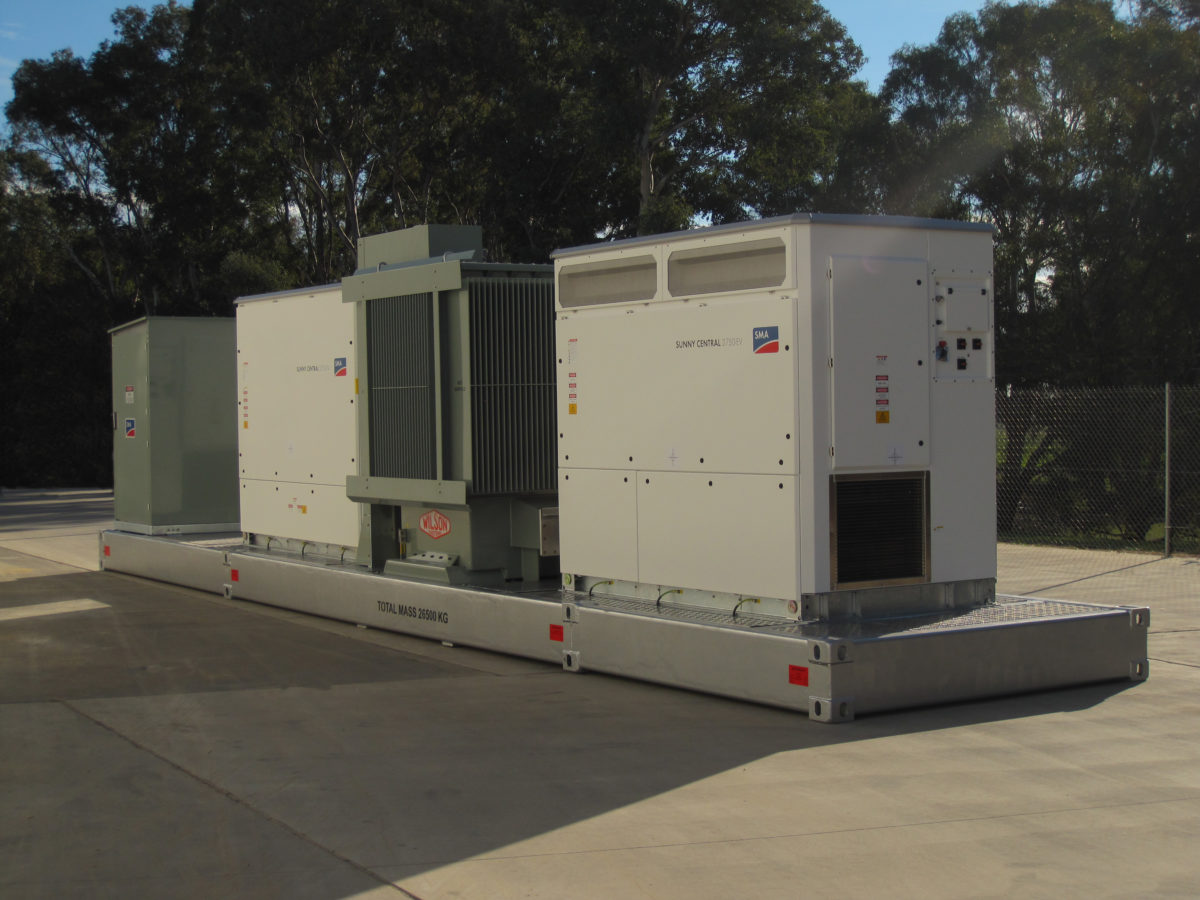A locally made central inverter, to meet local standards and grid requirements, slash lead times, and reduce currency risk for developers: SMA reports that a host of benefits are already impacting the market after the unveiling of its new Power Skid central inverter and transformer unit earlier this month.
Bernhard Voll, the platform product manager medium voltage from SMA’s Business Unit Utility says that these are just some of the advantages the Power Skid delivers.
“We wanted to provide a localised solution allowing for shorter lead times, easier compliance with Australian Standards, simple spare part management, more local content and a more tailored solution for the Australian Market,” says Voll.
pv magazine Australia is hosting a webinar on the Power Skid on Monday July 30, at 2pm AEST. Register for the free webinar here.

Image: SMA/Bernhard Voll
“In terms of fulfilling these goals, the Power Skid has been highly effective, with the added benefit that we now avoid expensive import duties and reduce currency risk,” Voll continues.
Quantifying the currency risk, Voll says that given inverter/transformer units account for between 5 – 10% of the total costs of a utility scale PV array, and currency variation between the euro and Australian dollar 18%, the total saving can equate to around 2% of the project cost.
“Currency risk is a major concern in solar plants where you get revenues in Australian dollars and spend most of your costs during installation in U.S. dollars or euro,” says the SMA utility scale expert.
The Power Skid will be assembled by the Wilson Transformer Company Wodonga, Victoria, with much of the equipment being sources from Australian companies. Voll says this not only creates jobs in the regional community, but also will reduce shipping times – as the utility scale market segment continues to boom.
“We had substantially increased lead times at the end of last year due to the massive boom in Australia,” says Voll. “This is one of the reasons we established a new local production line. Having a local production allows reduced lead times. We still have our global resources to cater for the boom, we just add a substantial production line to our fleet allowing us to cater for the market growth in Australia.”
Notably, the Power Skid is not a containerized solution. This type of construction for central inverters is proving popular in hotter PV markets – allowing for natural ventilation and cooling. A container housing is not required, SMA reports, as the system is not transported by sea.
One trend within the global inverter market in recent years, has been the rise of Chinese suppliers. SMA claims that the local conditions, including “complex market rules” make it difficult for Chinese suppliers to “meet network demands.” These demands include the long ‘skinny’ distribution network, concentrated loads, and the lack of international connection.
“Nevertheless, we see increased competition which drives innovation and price even further,” says Voll. “We are prepared for this and have now a product which perfectly meets Australian market demands with our localised production that no Chinese Manufacturer has been able to establish to date in Australia.
Bernhard Voll will lead the presentation on the upcoming webinar. Register free here.
This content is protected by copyright and may not be reused. If you want to cooperate with us and would like to reuse some of our content, please contact: editors@pv-magazine.com.








By submitting this form you agree to pv magazine using your data for the purposes of publishing your comment.
Your personal data will only be disclosed or otherwise transmitted to third parties for the purposes of spam filtering or if this is necessary for technical maintenance of the website. Any other transfer to third parties will not take place unless this is justified on the basis of applicable data protection regulations or if pv magazine is legally obliged to do so.
You may revoke this consent at any time with effect for the future, in which case your personal data will be deleted immediately. Otherwise, your data will be deleted if pv magazine has processed your request or the purpose of data storage is fulfilled.
Further information on data privacy can be found in our Data Protection Policy.